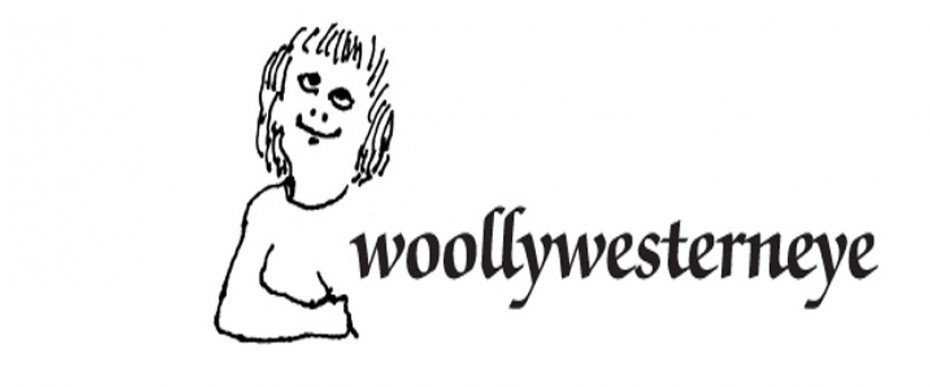When my turn arrived to question the Russian visitor, Gennadi looked at me and the surrounding scene behind long lashes and a smile worthy of de Vinci’s Mona Lisa. His answers were translated to me by Olga and George. Gennadi kept on smiling at me. This was an interview?
The matinee hour loomed close. We trooped back to the car after short, swipe-like forays in the nearby women and men’s clothing store before climbing into the car. “Don’t let him see too much, ” groaned Olga. “He didn’t take much money out of Russia, only $15.” [Olga later said this was standard Soviety practice before glosnost.] The energies bounding around struck me like a wind instrumental ensemble, a counterpoint to my own lugubrious tones, heaving like the umpha-pah of a tuba. Olga was the fife with a ceaseless supply of oxygen, Marda’s qualified for the piccolo pitch while George and Gennadi supplied the more mellow tones of oboe and bassoon.
During Round III, after the excitement around the defection of Lin Jian-Wei, the Shanghai-trained dancer, Olga stopped me in the aisle and asked if I would be willing to program Gennadi during his San Francisco visit. Would I? In that setting and with such a prelude, it reverberated like an imperial summons, with all the balletic mystique one could possibly conjure.
So Gennadi came, and stayed at the flat and was escorted around by Thelwall Proctor, professor of Russian at Humboldt State University. Gennadi visited Anatole Vilzak at San Francisco Ballet, still out on 18th Avenue,where Vilzak gave him his graduation certificate from the Imperial Ballet School on Theatre Street; Gennadi took the certificate with him to Nuvosibersk for the Guild and Museum he had fostered there. And ultimately he departed.
Labor Day weekend came a cheerily-voiced phone call. The voice warbled over the telephone, “Renee, it’s Olga!” She announced an international roster of seven competition winners would dance in November in Stockton.
Stockton? Yes, Stockton. Stockton, California, home of the original Caterpillar Tractor Company; Sperry “Drifted Snow” flour; the first state hospital, an asylum for the insane George Shima, the Potato King, whose engineering efforts reclaimed so much Delta land for agriculture from the swamps, land reclaimed that he could not own because he was Japanese-born. Stockton, the first major American settlement of Sikhs from the Punjab in India. It was the Sikh presence which was responsible for changing the name of the Japanese Exclusion League to the Asian Exclusion League.
Enter Dorothy Percival, Stockton’s raison d’etre for the forthcoming galaxy gathering, and another redoubtable lady in dance. Artistic Director of the San Joaquin Concert Ballet Association, member of the Pacific Regional Ballet Association, Dorothy possessed a braid sometimes hanging down her back, making me think of the Bird Woman of the Lewis and Clark Expedition, without whom those explorers would never have made it to the Pacific Ocean. Whether or not Dorothy was part Indian, she was in spirit a Sackajaweah, and she could bird dog an idea into reality with equally persistent energy. Straight-faced, forthright, a woman remarkably open and unpretentious, tempting one to strew flowers in celebration.
Dorothy, in my memory, proceeded from loving. She nurtured, involved and fostered more talent than was easily enumerated, and from atypical ballet body types and ages. The expression emerged, however, for Dorothy had the remarkable gift of being alert to the best, and finding it without turning her back or closing the door on anyone. With a skill born only from a surpassing devotion, Dorothy put them all to work, purposefully, providing that all-important climate where the young, vulnerable, aspiring, the dreamer was permitted to get to together, decide their direction, labor and ultimately go forth. In my memory, with the final summation of talent required of such nurturing, Dorothy knew when, how and why to let the fostered to, to release them without clutching, without tears. There may be naysayers to this evaluation written some thirty years ago, but I was never aware of it.
The seven dancers Olga and Dorothy collected had accumulated awards in junior and senior individuals, numbered thirty. A few special dance award and national citations were also added. European commitments between September and November changed the personae, but the line remained international, both exciting and impressive. It included Medhi Bahiri, Algeria; Marin Boieru, Roumania; Claudia Jung, Germany; Lubomir Kafka and Jana Kurova, Czechoslovakia; Nancy Raffa, U.S.A.; Eric Vu An, France. The Stockton International Awards Gala was the U.S. debut for Jung and Vu An.
The list included a clutch of Prix du Lausanne winders: Bahiri; Kurova; Raffa. Bahiri, Boieru, Jung, Kafka , Kurkova and Vu An ad earned medals at Varna , Bulgaria where the jet-ago phenomenon had fostered the first International Competition in 1953. Boieru and Jung won medals at Moscow, the Czechs in Tokyo. Boieru enjoyed the additional distinction of having partnered the Italian ballerina Carla Fracci. Equally staggering were the roster of companies the dancers represented: Basle, Switzerand; Bejarts Ballet of the Twentieth Century; Ballet West; Boston Ballet; Dusseldorf Opera, Germany; National Ballet of Prague; American Ballet Theatre; Pennsylvania Ballet; l”Opera de Paris where Louis XIV’s passion for ballet had enjoyed its first subsidized home.
The dancers were gathered by their facility for winning and with Olga’s specialty, handling talented dancers, who were in some way Russian-trained. They had not performed together prior to their Stockton arrival five days prior to the Gala and most had not seen each other dance. The original performance, scheduled for November 5, would have enabled another appearance in southern California to defray their air travel expense. An unavoidable delay meant that Dorothy and the San Joaquin Concert Ballet had to go the financing alone. That was asking a lot for a valley town for a one-shot performance in the 1982 economy. Characteristically, however, Dorothy remarked while talking in the pre performance hush, “If you don’t risk once in a while, you never get anywhere!”
